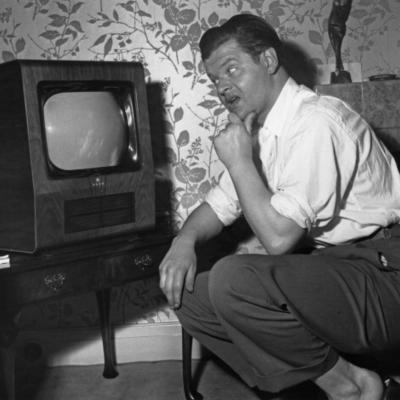Benny Hill at a Glance
- Categories: Celebrities, Celebrities > Comedians
- Net Worth: $15 Million
- Birthdate: Jan 21, 1924 - Apr 20, 1992 (68 years old)
- Birthplace: Southampton
- Gender: Male
- Profession: Comedian, Actor, Screenwriter
- Nationality: England
- Height: 5 ft 9 in (1.77 m)
The Enduring Legacy of Benny Hill: Net Worth, Career, and Estate
Early Life and Career Beginnings
Alfred Hawthorne Hill, better known to the world as Benny Hill, was a celebrated English comedian, actor, and writer whose comedic style was characterized by slapstick, burlesque, and double entendres. Born on January 21, 1924, in Southampton, Hampshire, England, Hill’s career spanned several decades and left an indelible mark on the world of comedy. His career began in 1937, laying the foundation for a remarkable journey into the entertainment industry.
Hill’s initial foray into the world of entertainment was as an assistant stage manager, which provided him with valuable experience and exposure to the industry. He was greatly influenced by comedic giants like Jack Benny and Charlie Chaplin. He later adopted the stage name “Benny Hill” as a tribute to Jack Benny, demonstrating the significant impact of his comedic heroes on his career trajectory.
Following World War II, Hill began his career as a radio performer, showcasing his versatility by performing in various shows, including a comedic adaptation of Shakespeare’s A Midsummer Night’s Dream. He also attempted to create his own series, which included shows such as Benny Hill and Benny Hill Time. These early ventures allowed him to hone his comedic skills, experiment with different styles, and build a following that would later catapult him to international fame.
The Benny Hill Show: A Comedy Phenomenon
The Benny Hill Show, which aired from 1955 to 1991, was the cornerstone of Benny Hill’s success and became a global phenomenon. The show was known for its fast-paced comedy, including slapstick, visual gags, and the famous “Hill’s Angels.” This group of attractive women added a distinct visual appeal to the show, becoming a signature element of the program.
- Format: The show’s format typically featured a series of sketches, musical performances, and short films.
- Comedy Style: Hill’s humor relied heavily on visual gags, puns, and innuendo.
- International Appeal: Despite its British origins, The Benny Hill Show gained immense popularity worldwide, airing in numerous countries.
- Legacy: The show’s success cemented Hill’s status as a comedy icon and remains influential.
The show’s humor was not without controversy. While incredibly popular, the show also faced criticism for its treatment of women and its use of suggestive content. Despite these criticisms, The Benny Hill Show remains a significant part of television history, with reruns continuing to attract viewers globally. The show’s innovative use of editing, quick cuts, and musical accompaniments added to its unique charm and comedic timing, making it an enduring example of successful television comedy.
Other Works and Achievements
Beyond The Benny Hill Show, Benny Hill had a diverse career that included roles in several films and television productions, showcasing his versatility as an entertainer.
- Film Appearances: Hill appeared in notable films such as Who Done It? (1956), Those Magnificent Men in Their Flying Machines (1965), Chitty Chitty Bang Bang (1968), and The Italian Job (1969).
- Audio Recordings: He also released a series of audio recordings, expanding his reach across different media.
- Chaplin’s Admiration: A testament to his talent, Charlie Chaplin, a comedy legend himself, was a fan of Hill’s work. Hill was reportedly one of the few non-family members welcomed into Chaplin’s private study.
- International Recognition: In 1991, he was awarded the Charlie Chaplin International Award for Comedy, highlighting his significant contribution to the world of comedy.
Net Worth at Death and Estate Value
At the time of his death on April 20, 1992, Benny Hill’s estate was valued at $8.5 million. Adjusted for inflation, this amount is roughly equivalent to $15 million today. This figure reflects the financial success Hill achieved throughout his career, primarily through The Benny Hill Show and his various other ventures. Despite his professional achievements, his personal life and estate planning took a turn.
Hill’s will, written three decades before his death, named his parents as his primary beneficiaries. However, as both parents had already passed away by 1992, the inheritance was intended to go to his siblings. Unfortunately, all of his siblings were also deceased by the time of his death. Consequently, the estate was divided among several nieces and nephews, some of whom he had never met, as he was estranged from their parents. This circumstance highlights the importance of regularly updating one’s will to reflect changing family dynamics.
Legacy and Influence
Benny Hill’s legacy extends far beyond his financial success. His unique brand of comedy, with its blend of slapstick, visual gags, and double entendres, continues to influence comedians and entertainers worldwide. His ability to blend physical comedy with clever writing and a unique cast of characters made him a standout figure in the entertainment industry.
The Benny Hill Show, with its global appeal, introduced a generation of viewers to a particular style of British humor. While some aspects of the show have received criticism, its comedic timing, innovative editing, and memorable characters remain subjects of study and admiration.
Benny Hill’s lasting influence can be seen in various forms of media. His sketches and routines are frequently referenced in contemporary comedy. His work is often studied in media and comedy courses, highlighting his impact on the history of television and comedy. His legacy is not just about the money he made but the laughter he brought to millions.

